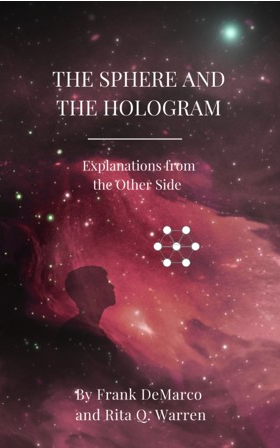Tuesday, October 15, 2019
A chief source of confusion for people is how the “external” world can be really only an expression of unknown parts of themselves; and can be existent in and of and for itself. If this is once understood, many things clarify, because who and what you are clarifies. As long as you can’t see yourselves as both individual and not-individual, you are going to have to choose between what seems to be a divide. When you see one thing as if it were two things, obviously you won’t be able to see it whole.
We trust that by this time our description of reality as without absolute boundaries has been absorbed.
I get that you want to recap many things like reality being projected rather than existing as “real” in the way it appears to us. You may be able to trot all that out again, though I couldn’t, but how are you going to spend the hour recapitulating and then have any time for anything new?
We understand the frustration. Do you have a better idea?
What about just putting out the headlines, and let people use their own search-engines?
Interesting idea. Bold idea, even. But can you transcribe the headlines?
I don’t know. Let’s try, and we will or we won’t get something.
All right. Headlines:
• “Life is but a dream.”
• “All is one”;
• “As above, so below.”
• “As a man thinks in his heart, so he is.”
• “Until you make the unconscious conscious, it will rule your life, and you will call it fate.
• ”Beyond this mortal realm, there is another, not mortal; yet the two are one.
• You are not primarily 3D beings and yet you are. Which way you define yourself (con-fine yourself) determines who you appear, how reality appears.
• The only permanent thing is eternal unceasing change, and yet eternal change is itself a form of changelessness.
And you see the problem as well as the possibility: Too concise a statement emerges as paradox or cryptic allusion. Our habitual slow process of exposition avoids that pitfall.
Maybe worth alternating. I get tired of plodding exposition, continually half-repeating previously established views so as not to let them fall into oblivion.
Well, then, another headline or two, and then we will pause.
• You are the entire world, yet you are only the tiniest part of it, rather like a hologram.
• As a “divine spark,” that is, stemming as you do from something that is not of the 3D level of reality, your nature cannot be satisfied with 3D reality alone.
• Earth is not a school; it is closer to a gymnasium, or basic training.
• You are neither ignorant nor isolated nor limited, and yet your 3D experience continually tempts you to see yourselves that way. Why do you suppose that is?
• Life is vastly greater than the 3D version of life that you are living in one part of yourself.
